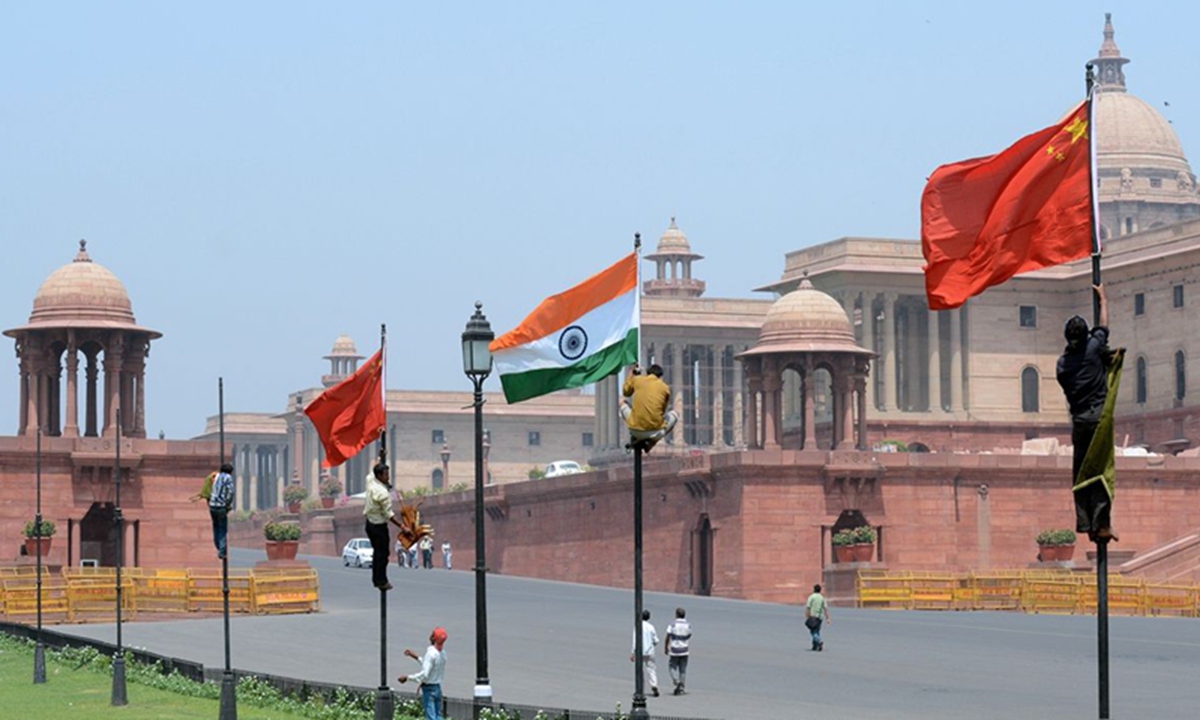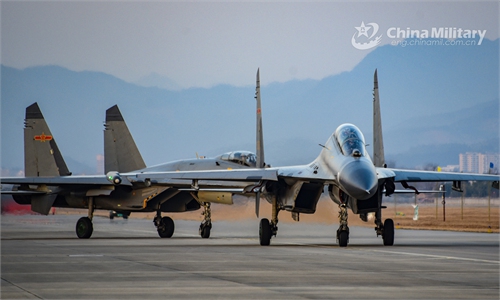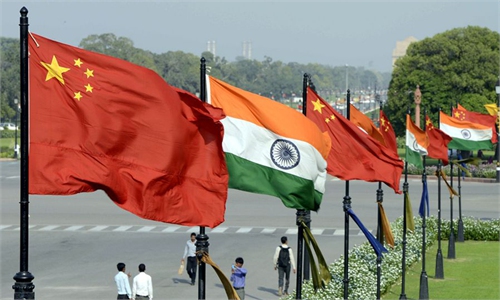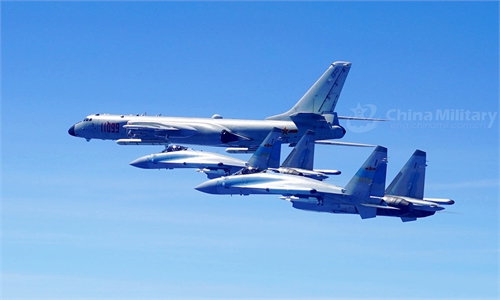Latest China-India military talks agree to push for early disengagement as spring nears

China-India
China and India on Sunday held the ninth round of the Corps Commander Level Meeting, in which both sides agreed to push for an early disengagement of the frontline troops and continue to stabilize and control the border situation, China's defense ministry announced on Monday.
Despite the positivity shown by the meeting, with no significant breakthroughs achieved, Chinese experts expect continued, prolonged negotiations heading into spring, when warm weather could again promote military activities, and the face-off will likely continue.
The ninth round of the China-India Corps Commander Level Meeting was held on the Chinese side of the Moldo-Chushul border meeting point on Sunday, and the two sides had a candid and in-depth exchange of views on disengagement along the Line of Actual Control (LAC) in the Western Sector of China-India border areas, reads a joint press release published by the Chinese Ministry of National Defense on Monday.
It has been more than two and a half months since the last meeting, which took place on November 6, 2020 on the Indian side of LAC.
Both sides agreed that the latest round of meeting was positive, practical and constructive, which further enhanced mutual trust and understanding, the statement said.
The two sides agreed to push for an early disengagement of the frontline troops and to follow the important consensus of their state leaders, maintain the good momentum of dialogue and negotiation, and hold the tenth round of the Corps Commander Level Meeting at an early date to jointly advance de-escalation.
They also agreed to continue their effective efforts in ensuring the restraint of the frontline troops, stabilize and control the situation along the LAC in the Western Sector of the China-India border, and jointly maintain peace and tranquility, according to the press release.
While it showed positive signs that China and India are still managing to find agreements Chinese analysts noted that compared with official statements released after previous meetings, the latest release did not feature concrete progress significant enough to be called a breakthrough.
Over the past two months, both sides have been putting efforts to find common ground in differences while keeping the situation away from worsening, Qian Feng, director of the research department at the National Strategy Institute at Tsinghua University, told the Global Times on Monday.
But there are still huge differences in perception and proposed resolutions, and it was very difficult to reach a complete agreement as for now, so the ninth round of meeting was just another step toward the direction to solve the problems, Qian said.
It is worth noting the press release called for "maintaining the good momentum of dialogue and negotiation" for the first time. This shows that while no breakthrough was made, the atmosphere at the talks was good and not confrontational no matter what the outside world speculated, Qian said. Both sides are willing to further reduce differences, realize disengagement, then promote de-escalation through talks.
Other analysts said there are more positive signs shown in the release, including more consensus on disengagement.
Qian also pointed out that the US reportedly provided intelligence to India in the past and acted as a catalyst to the situation, but now that the new US administration will need to focus on other domestic problems like epidemic control, economic revival and racism, it's uncertain the Biden administration will support India as did the Trump administration.
It will be only two to three months away from spring, observers said. The initial border dispute of this round started in May 2020.
Qian said that spring will provide a more suitable environmental condition for both countries' frontline troops, and the troops have already become used to the face-off.
The face-off will likely continue, and the talks could be prolonged, Qian said.




